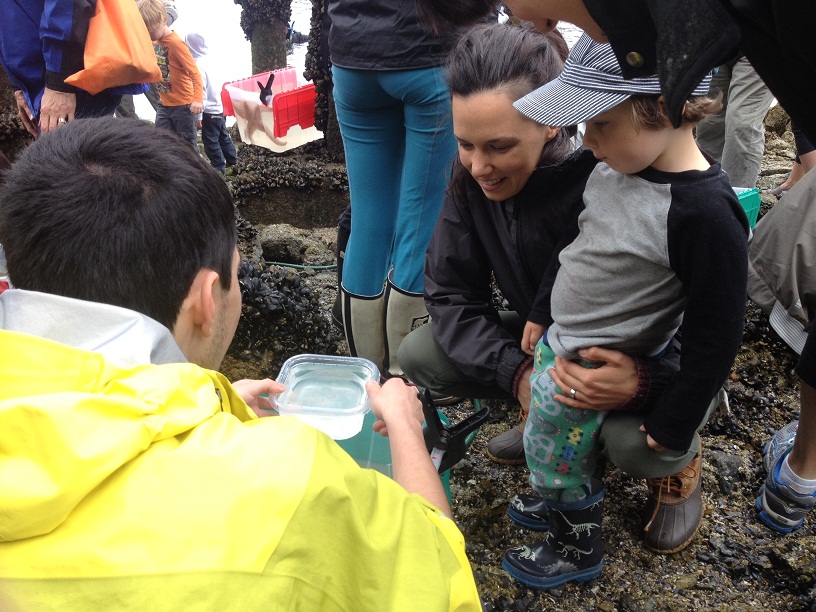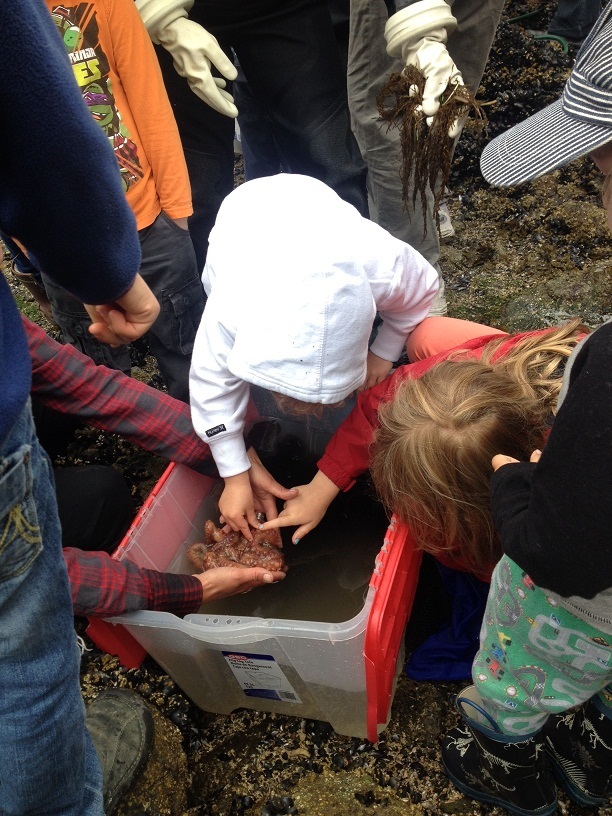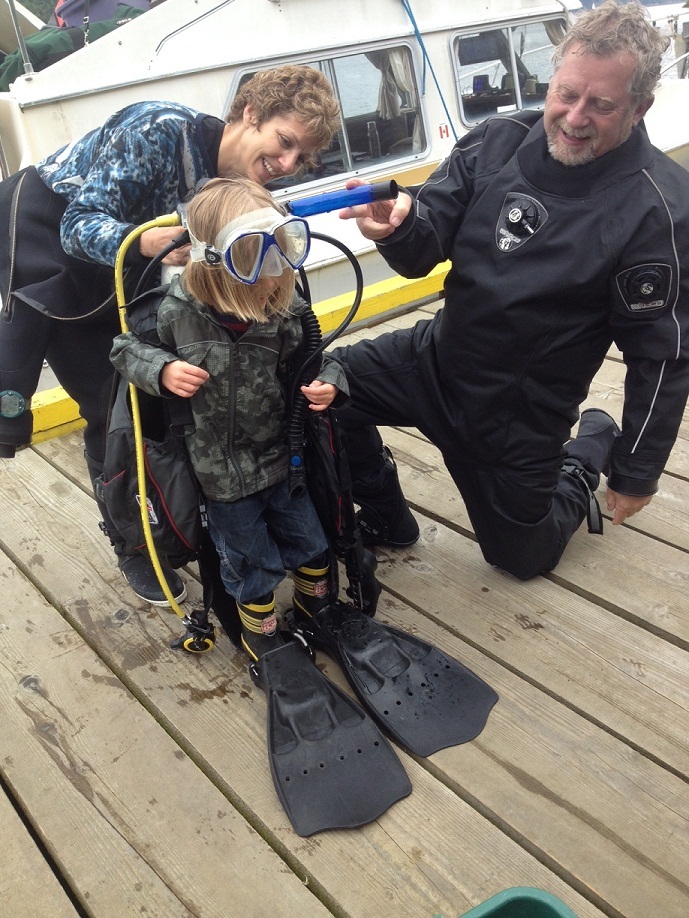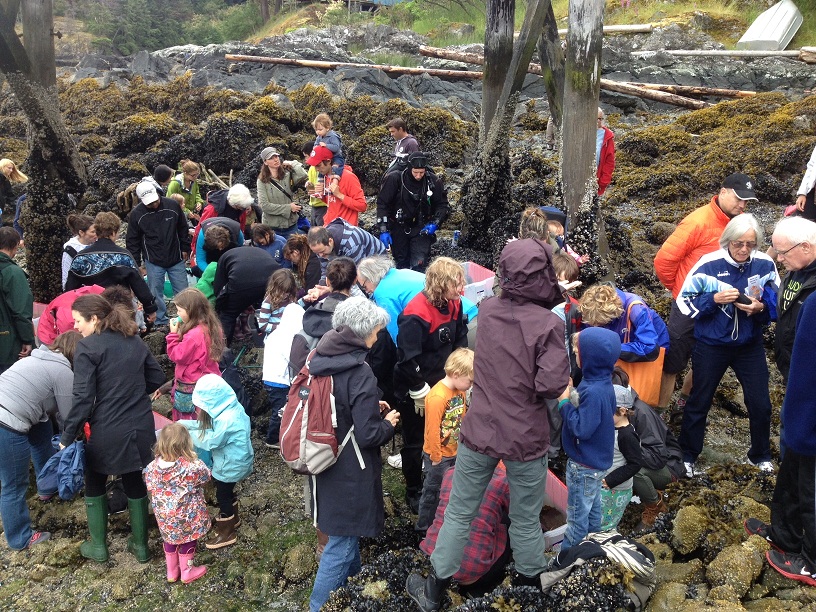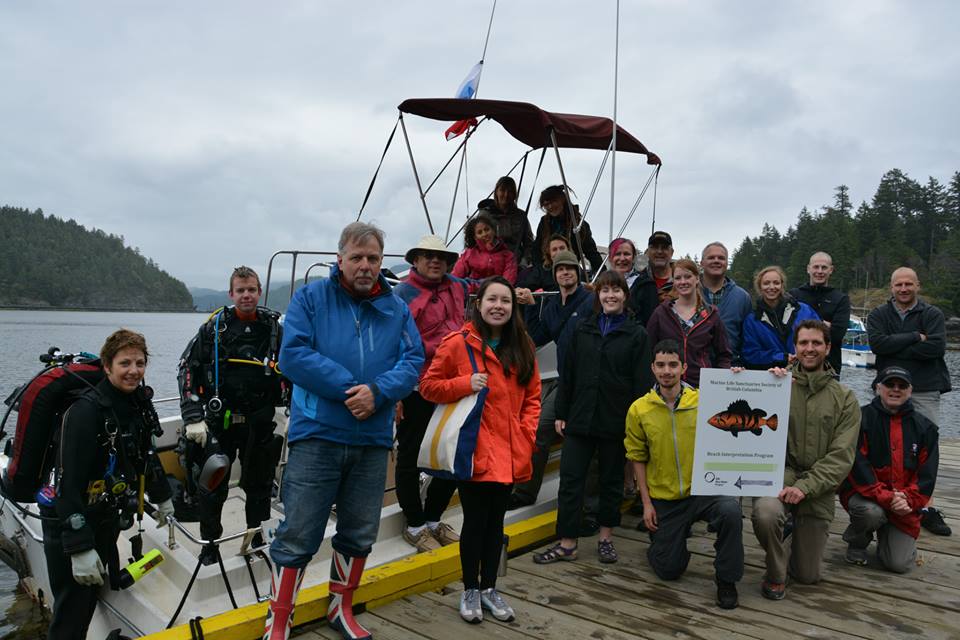Guest post by Brendan Andresen
I sat down for my usual Sunday morning breakfast outing at IHOP, pulled out my notebook and pen and began to write while I sipped my coffee and waited for my food to arrive. Father’s Day was proving to be a busy one. They sat me down at a table and chair in front of the fire escape — clearly a seat that isn’t on the regular floor plan but instead whipped together to handle the crowds of proud fathers. I was grateful to get tucked away with my giant coffee pot, my pen and pad. I could sink into my thoughts. Looking at all the people chowing down, waitresses and hostesses running food and people back and forth, I felt that the hustle and bustle was a sharp contrast to my previous before.
The early morning roads were calm as I drove over the Lions Gate Bridge in Vancouver, British Columbia. My dive geared was stowed in my car and I was on my way to meet the dive boat at Lions Bay. Passing a morning jogger, I noticed him looking out over the water and I found myself doing the same. I looked up the islet and onto the open ocean, a view I’m no stranger to since this route is a regular commute for most local diving sites. Regardless of how many times I traveled this way, I could get lost in the view every time.
I had volunteered as a diver for the annual Marine Life Sanctuaries Society’s (MLSS) Beach Interpretation Program on Bowen Island, an event primarily focused on educating the public, especially young children, on the local marine life. Giving back to the community and providing kids with a fun and positive experience when it comes to marine life is important to me. The divers were split up into five buddy teams. The first four teams were to go out and collect different marine animals and bring them back to the beach, where holding tanks were waiting. The fifth team was in charge of putting down a drop camera that relayed live feeds of underwater life back to monitors set up on land. This being my first beach interpretation I was impressed with its scope. The divers were working in conjunction with a team of marine biologist on land who were in charge of caring for the marine life and educating participants on all the different marine creatures we caught.
After arriving at Galbraith Bay on Bowen Island, there wasn’t much time before the estimated 100+ kids were scheduled to start flocking to the beach. Geared up, my dive buddy and I were off in the water. We were team three, responsible for collecting echinoderms — basically anything with the word “sea” in it — sea stars, sea urchins, sea cucumbers; you get the idea. We dove right off the dock, each taking a big mesh collection bag, which we filled with smaller zip lock bags and containers to hold all the little, and sometimes not so little, sea creatures. While searching for our critters, I felt myself go into full hunter-gatherer mode, which injected what I can only describe as pure, determined focus straight into my blood stream. The dive felt amazing; I was excited and amped. I found I needed to remind myself I was underwater, to check my air, to check that my buddy was okay. We needed to be gentle, as the care and safety of all the sea creatures we caught was our prime objective.
Back on land we offloaded our loot to the waiting team of biologists as the first wave of kids started to arrive. I dumped my gear and walked over to the crowding beach to participate in the frenzied excitement. Slightly intimidated by the powerhouse of marine knowledge we had at our disposal, I at first didn’t talk much. Standing on the beach, side-by-side with the kids and parents I shared the same sparkle they had in their eyes. One of the interpreters was kneeling over a tank, holding up a crab pinching the air. “When crabs begin to grow, they reach a point where they can no longer fit in their shell,” said the interpreter. “They feel the pressure of their soft bodies squeezing against their hard, protective exterior. The only way they can continue to grow and survive is to break free of their shell, abandon the safety and security it provides them. It’s a risk each crab must take, but the risk is worth the reward, and their new shell will be bigger and better.”
Being a diver on the beach felt great. Parents thanked me, and everyone made way as I passed by in my drysuit. Passing by a mother holding an infant in her arms, he looked up at me, eyes wide with wonder and mouth open. “Yes little one, I am a super hero,” I thought as I looked at him and smiled. Standing with pride over the tanks of the critters that I caught I felt like one of the kids — “I caught that one!” “Look at this one, this one is my favorite.” “Oh, touch this one, it’s cool!” — I said as the kids walked by.
As the kids began to leave, my buddy and I suited up to return the sea creatures back to their homes. Underwater I searched around briefly until I found a suitable home for them. Pulling out the ziplock bags I sliced them open with my dive knife, releasing each creature individually. Underwater I swear I heard the word “freedom” bubble out as they floated down to the sea floor. I gave a silent thanks to these creatures, which had sacrificed their afternoon to be picked up and poked by a million tiny fingers, satisfying childhood curiosity, and transforming that curiosity into respect.
Afterwards, one of the people who organized the interpretation invited all the volunteers back to his house on Bowen Island for a BBQ before we hopped back on the boat home. With a full belly and warmed to the bones, I felt relaxed, and had a sense of accomplishment about the day. On the way back home, our boat Captain Glen, one of the marine interpreters and I sat up top and enjoyed the parting clouds and open air as we motored back to the mainland. Glen pointed over to an island out one of the islands in the distance. “That’s Passage Island,” he said. “It was one of the first things George Vancouver named when he first discovered Howe Sound.” After a brief pause he continued. “It’s interesting if you think about it — that was only about 200 years ago. Look how much it’s changed since then. Makes you wonder what it will look like in another 200 years.” Taking it in and looking out over Howe Sound, I was with my thoughts. You’re right Glen, It does make you wonder.


